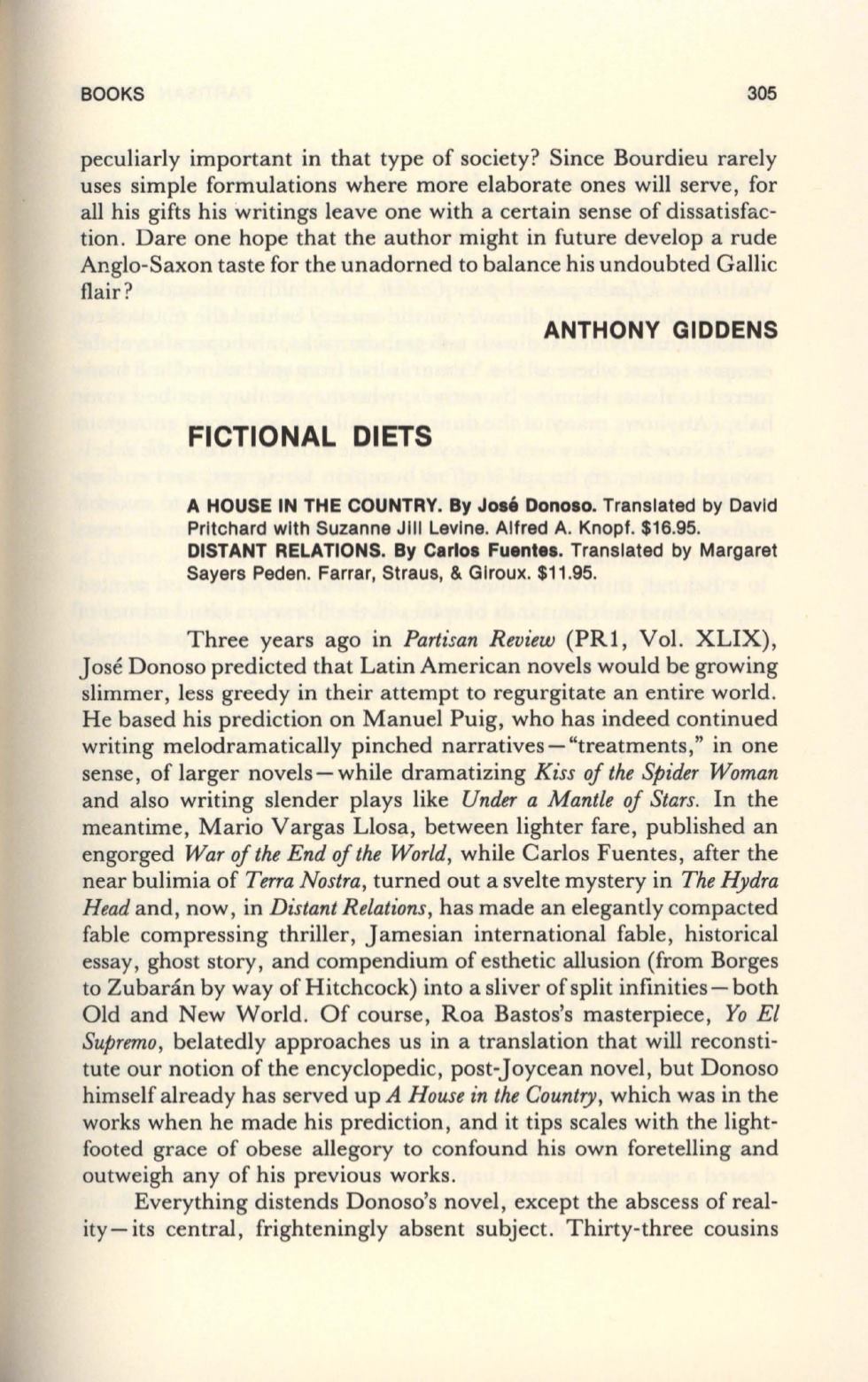
BOOKS
305
peculiarly important in that type of society? Since Bourdieu rarely
uses simple formulations where more elaborate ones will serve, for
all his gifts his writings leave one with a certain sense of dissatisfac–
tion . Dare one hope that the author might in future develop a rude
Anglo-Saxon taste for the unadorned to balance his undoubted Gallic
flair?
ANTHONY GIDDENS
FICTIONAL DIETS
A HOUSE IN THE COUNTRY.
By
Jose Donoso.
Translated by David
Pritchard with Suzanne JI" Levine. Alfred A. Knopf. $16.95.
DISTANT RELATIONS.
By
Carlos Fuentes.
Translated by Margaret
Sayers Peden. Farrar, Straus,
&
Giroux. $11 .95.
Three years ago in
Partisan Review
(PR1, Vol. XLIX),
Jose Donoso predicted that Latin American novels would be growing
slimmer, less greedy in their attempt to regurgitate an entire world.
He based his prediction on Manuel Puig, who has indeed continued
writing melodramatically pinched narratives - "treatments,» in one
sense , of larger novels - while dramatizing
Kiss oj the Spider Woman
and also writing slender plays like
Under a Mantle oj Stars.
In the
meantime, Mario Vargas Llosa, between lighter fare, published an
engorged
War oj the End oj the World,
while Carlos Fuentes, after the
near bulimia of
Terra Nostra,
turned out a svelte mystery in
The Hydra
Head
and, now , in
Distant Relations,
has made an elegantly compacted
fable compressing thriller, Jamesian international fable, historical
essay, ghost story, and compendium of esthetic allusion (from Borges
to Zubaran by way of Hitchcock) into a sliver of split infinities - both
Old and New World . Of course, Roa Bastos's masterpiece,
Yo El
Supremo,
belatedly approaches us in a translation that will reconsti–
tute our notion of the encyclopedic, post-Joycean novel, but Donoso
himself already has served up
A House in the Country,
which was in the
works when he made his prediction , and it tips scales with the light–
footed grace of obese allegory to confound his own foretelling and
outweigh any of his previous works.
Everything distends Donoso's novel, except the abscess of real–
ity- its central, frighteningly absent subject . Thirty-three cousins


